30 MIN.
3-4 WEEKS
0.5 GAL.
Get ready to add preserved lemons (also sometimes referred to as Moroccan lemons) to the list of things you never knew you needed before but suddenly can’t live without!
These babies retain their well known sweet and tart notes throughout the fermentation process while additionally picking up a powerful salty punch. We specifically recommend using Meyer lemons as they are a naturally sweeter variety of lemon with softer and thinner rinds that make for a more palatable finished product.
Dice them over a marinated and baked chicken breast, blend them into a tapenade or aioli, add them to a summer pasta salad or (our favorite!) swap them in for anchovies on a romaine and chicken Caesar salad. There truly is no limit to what you can do with these delicious and versatile garnishes!
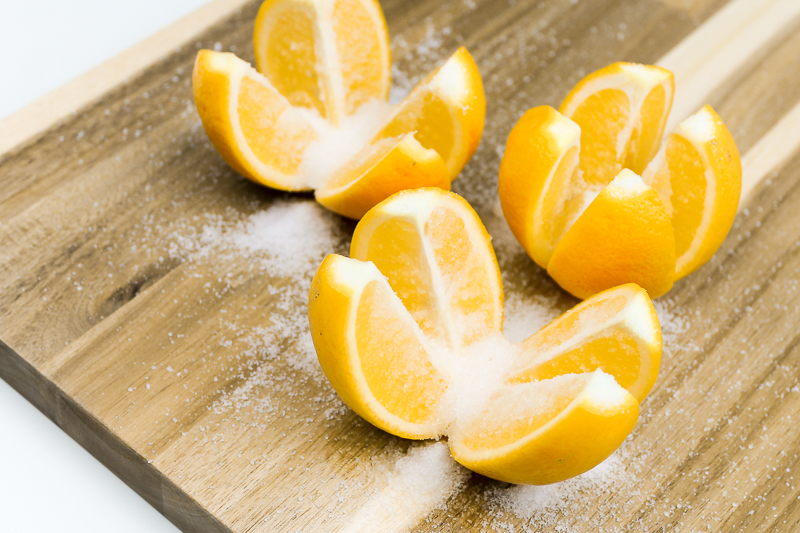
Special Equipment
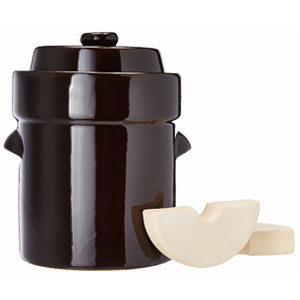
Fermentation Crock
There are many benefits to fermenting in a traditional water-sealed fermentation crock including an easier experience, better flavor, and higher likelihood of success. We recommend our Sauerkrock, the best selling fermentation crock on Amazon.

Sauerkraut Pounder
Sauerkraut pounders (not just for Sauerkraut!) increase the amount of brine extracted from vegetables, and more brine means better coverage and less spoilage. We recommend our crock compatible Sauerstomper for its extra length.
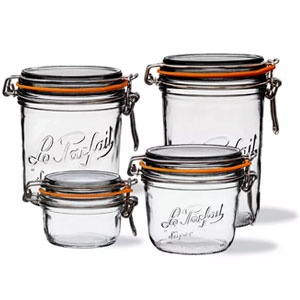
Fido Jars
After your batch has finished fermenting, fido jars are a great storage option. We love them because you will never lose your lid and it's pretty enough to serve out of! Choose a 1-quart capacity or more for versatility. We recommend Le Parfait Super Jars.
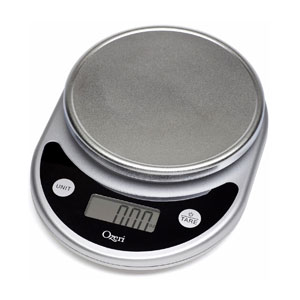
Kitchen Scale
Getting the right amount of salt is critical in fermentation to prevent rot and over-salinization. To determine your salt needs, weigh your prepared vegetables with this simple Ozeri scale and measure out 1 tablespoon of salt for every 1.75 pounds of food.
Additional Equipment: see our post on The 14 Items Every Serious Home Fermenter Needs for other kitchen tools we use for home fermenting and recommend to our customers!
Ingredients
- 8 Meyer Lemons
- 3 tbsp Fine Grain Mineral-Rich Dry Salt*
- 2 tbsp Black Peppercorns
- 2 Cinnamon Sticks
*We do not recommend using standard table salts or kosher salts when fermenting food as they are refined and often contain anti-caking agents. Natural, unrefined salts like Redmond Real Salt brand sea salt or Pink Himalayan Salt contain no artificial ingredients and maintain their original minerals which add to the quality and flavor of your recipe.
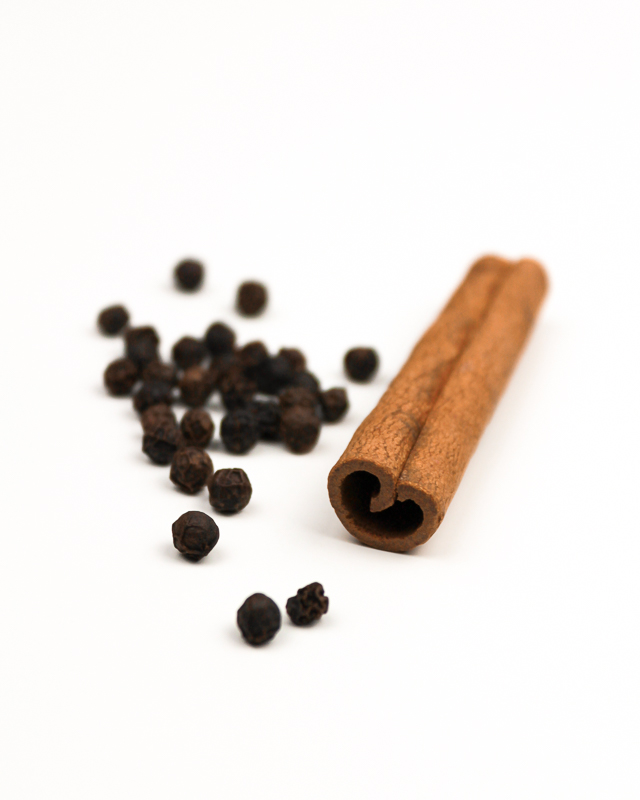
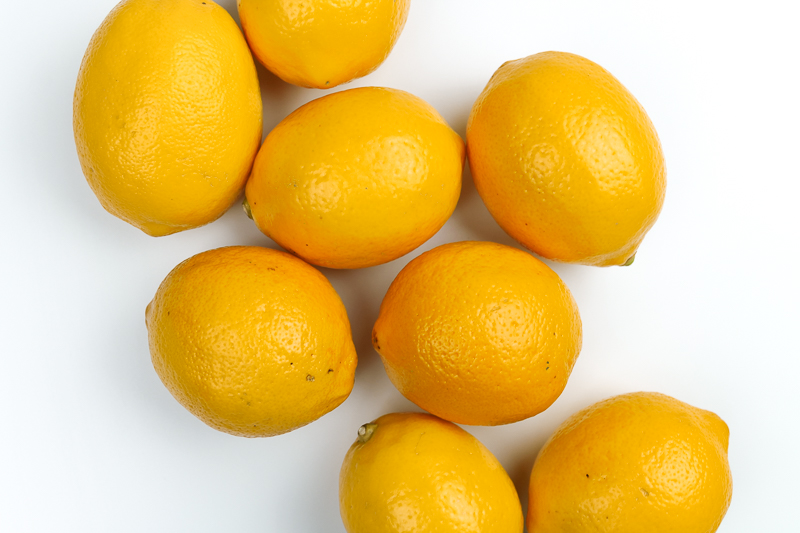
Instructions
1.) Prepare the Lemons
First, scrub the lemons clean with a vegetable brush. This is step is extra important for this recipe since the rinds remain on the lemon and actually get eaten in the finished product!
Next, trim the nubs off the lemons on both sides. If left on they can result in an undesirable bitter flavor in your finished product. Then cut the lemons into quarters, leaving them connected at one end, and gently pull the four quarters away from each other so that each lemon resembles a bloomed flower.

2.) Combine the Lemons & Salt
Saturate the interior of the opened lemons with salt (using 1/2 tablespoon per lemon) and lightly massage it into the fruit with clean hands.
Transfer the salted lemons into your fermentation crock and tamp them down with a vegetable stomper. This will help to extract juice and disperse the salt so that the lemons are fully coated and covered both inside and out.
When you feel you have worked up a good amount of brine, add one more tablespoon of salt, making sure to sprinkle evenly over the contents in the crock, and tamp for an additional minute to ensure even distribution.
IMPORTANT: Make sure the crock is filled no more than 80% full in order to leave room for the weights.
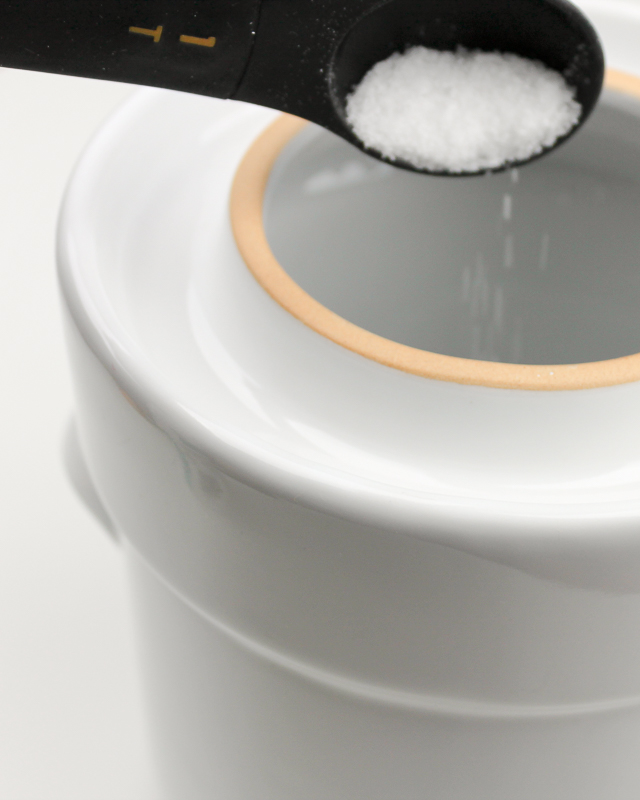
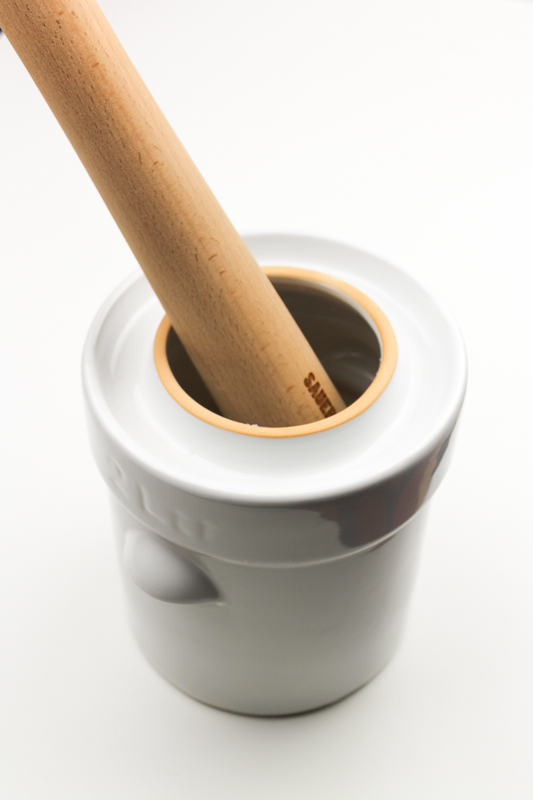
3.) Ferment The Lemons
Set the weights on top of the lemons to ensure they stay submerged in the lemon juice brine throughout the lacto-fermentation process.
Place the lid on the crock, fill the water channel and tuck the crock away in a low-traffic area (like the inside corner of a kitchen countertop) in order to prevent your lemons from being disturbed. Also, don’t forget to check the water seal regularly to ensure enough water remains after evaporation to keep a seal.
Let the lemons sit in the crock at room temperature for between 3 to 4 weeks.
4.) Store & Eat Your Fermented Lemons
Once the lemons have fermented to your taste preference and tolerance, move them into glass fido jars for storage in the refrigerator.
Fermented lemons will keep for months, but it’s best to eat them right away if the flavor and consistency are to your liking as they will continue to ferment, albeit slowly, in the refrigerator!

